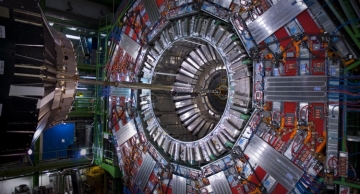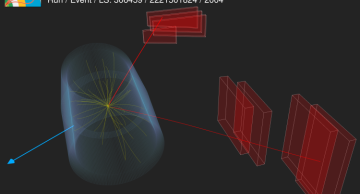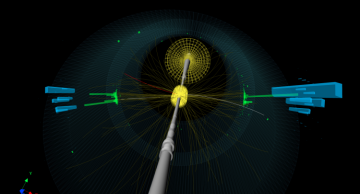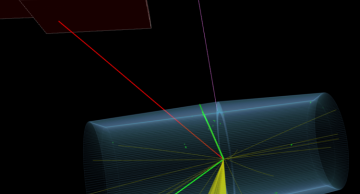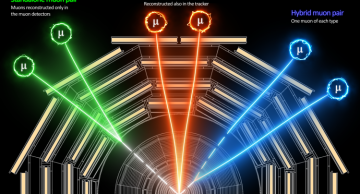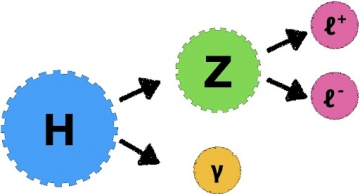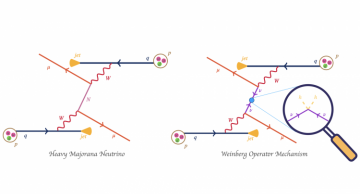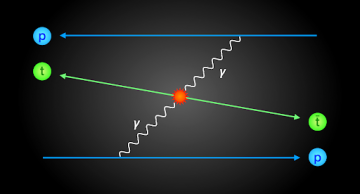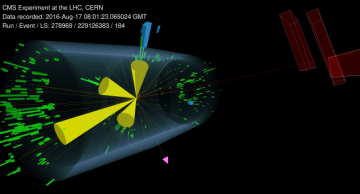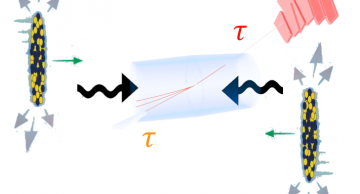The Large Hadron Collider, LHC, collides protons at an energy of 13 TeV — thirteen thousand times the mass of a proton. The high energy of the accelerator allows searching for (and maybe finding) new particles, but also in-depth studies of the…
News
|
ikhalid |
Detector
The Large Hadron Collider (LHC) at CERN is gradually restarting and in the summer bunches of protons will collide again at high energy, marking the start of Run 3.
Is CMS ready to manage the big amount of new data? The CMS Data Acquisition and…
|
ajafari |
Physics
The Large Hadron Collider (LHC) offers a unique opportunity to probe the internal structure of protons, with great precision and at unprecedented energies. According to Feynman’s parton model, protons are made up of three quarks, two “up”…
|
mazumdar |
Physics
Since the LHC collider started operating, more than a decade ago, several trillions of proton-proton collisions have taken place. Scientists have been painstakingly investigating the products of these collisions, as registered in their detectors, to…
|
mazumdar |
Physics
Since the discovery of the Higgs boson (H) in 2012, the ATLAS and CMS experiments at the CERN-LHC have made significant progress in understanding the properties of this new particle. It has zero spin, in agreement with the prediction of the well-…
|
mazumdar |
Physics
The biggest achievement of the LHC so far has been the observation of a Higgs boson in 2012. This is an outstanding confirmation of what today is the established theory that describes the fundamental interactions of particles, known as the standard…
|
mazumdar |
Physics
“The important thing”, says Einstein, “is not to stop questioning”, and we, as humans, never have. What is it all made up of? How does it fit together? We’ve been yearning to answer these questions for aeons, with our collective efforts…
|
mazumdar |
Physics
It has been almost a decade since the Higgs boson (H) was discovered by the LHC experiments, ATLAS and CMS. However, the enthusiasm to study this particle in detail is never ebbing. The H is being scrutinised vigourously in many more ways than the…
|
mazumdar |
Physics
Neutrinos (𝝂) are the most intriguing particles in nature. The evolution in our understanding about the characteristics of the neutrinos is also very interesting. The apparent non-conservation of energy in beta decay led Pauli to predict, in 1933, a…
|
mazumdar |
Physics
Ask someone what experiments at the CERN-LHC do, they will tell you: ‘You accelerate two protons to very high energy, smash them together and look in great detail at all particles created from the disintegration of the protons.’ etcetera. Well… yes…
|
fblekman |
Physics
Press Statement
The CMS collaboration has substantially improved the precision with which the top quark mass is measured. The latest result, a measurement of the top quark mass of 171.77 ± 0.38 GeV, was presented at CERN last week and estimates the…
|
mazumdar |
Physics
The quantum theory of electromagnetic interaction, called quantum electrodynamics (QED), is the most accurate and successful mathematical description of a large variety of natural phenomena. In numerous experiments over last many decades it has been…

